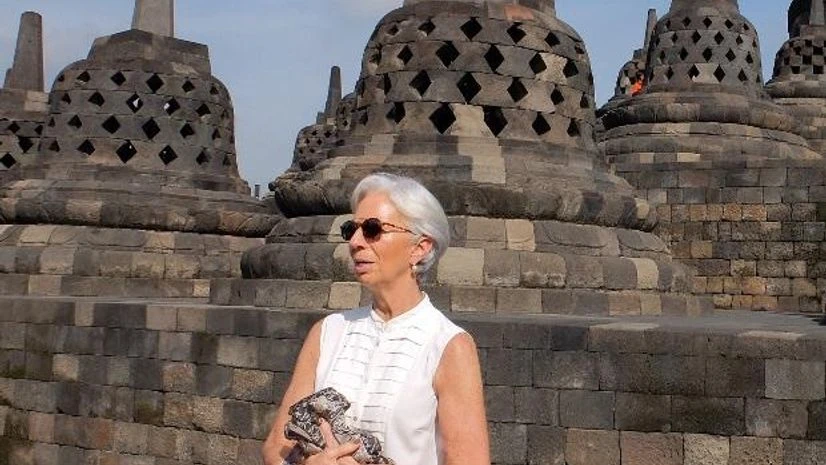No one emerges victorious from a trade war, International Monetary Fund chief Christine Lagarde said on Wednesday, warning that the economic impact of US import tariffs would be serious if other countries respond with their own barriers.
On Tuesday, US President Donald Trump reiterated his plan to slap big tariffs on steel and aluminium imports, warning the European Union would get hit with a "big tax" for failing to treat the United States well over trade matters.
"The macroeconomic impact would be serious, not only if the United States took action, but especially if other countries were to retaliate, notably those who would be most affected, such as Canada, Europe, and Germany in particular," Lagarde said on French radio RTL.
Trump's comments have sparked cries of foul play from US trading partners and warnings from US lawmakers and businesses of the potential for a tit-for-tat trade war that could hurt the US economy. Trump has said the United States could win such a war, since it was running such a large trade deficit.
"In a so-called trade war, driven by reciprocal increases of import tariffs, nobody wins, one generally finds losers on both sides," Lagarde said, adding that she hoped that Trump would not implement the tariffs threat.Trump's top economic advisor Gary Cohn, seen as a voice for Wall Street in the White House, said he would resign after he lost the fight against Trump over the tariffs.
The EU executive will discuss potential retaliation measures on Wednesday. It has drawn up a list of US products from bourbon to Harley Davidson motorbikes on which to apply tariffs if Trump follows imposes tariffs.
More From This Section
French European Affairs Minister Nathalie Loiseau the EU would raise the tariff threat with the WTO.
"We are not happy about this," Loiseau told Radio Classique. "Europe can no longer afford to be naive and passive faced with this aggressive protectionism," she said.
CHOKE ON WORLD GROWTH
Lagarde indicated that Trump might have a case for threatening tariffs, saying there were "a few good reasons" to protest against the current situation.
"There are some countries in the world that do not respect the World Trade Organisation agreements, and which impose technology transfers. China is a case in point but it is not the only country with such practices," she said.
But she said the international trade was an engine for growth, innovation and competitiveness and cautioned that any threat to trade was risky for world growth.
"If world trade were jeopardised by such measures (tariffs), they would become a vector for lower growth and a slowdown of commerce. The impact on growth would be formidable," she said.
Lagarde said she had the impression that the White House had not thought through the risks of retaliation.
"It looks like two camps have fought over whether or not to implement such measures and that one of the camps won the upper hand," she said.
Lagarde, a former French finance minister, also said growing income inequality was a barrier to sustainable growth.

)
